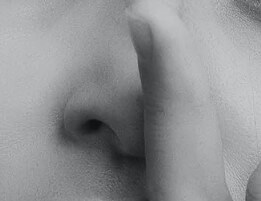Content
The smell and taste of water
Eliminating bad odours from tap water
Water filters to remove limescale from drinking water
Heating water: What happens when you heat unpurified water for tea or coffee?
Composition of water filters
Ceramic beads for water purification
Reverse osmosis and tap water
For more information on water purification alternatives
The best techniques for improving the taste of water
The taste and smell of water
Before reaching the tap, water goes through a long journey. First, it is an excellent carrier and drainer. It picks up many pollutants from the atmosphere as it falls from the sky or seeps into the ground, and ends up in water purifiers.
Then, to filter the water, chemicals such as chlorine are used to fight microorganisms or possible diseases that are present in the water.
And of course, water tastes different depending on where we are. This is precisely because of the distance from the water source (municipal or natural), as well as the products that are used to filter and purify it.
And finally, it also depends on the type and age of the pipes that lead the water to our home. For more information on the subject, please visit this link "Does water have a taste? Yes, and here is what and why"
Eliminating bad odours from tap water
In addition to tasting bad, water sometimes smells bad. This can be due to several factors, which are summarised in this table. For a more detailed explanation, visit this site "The most common water problems"
Smell | Cause | Treatment | |
Fish, soil, wood | Presence of organic matter in surface waters | Activated charcoal in water (more info) | |
Chlorine | Excessive chlorine concentration after treatment | Activated charcoal in water (more info) | |
Detergent, septic tank | Seepage from septic systems and infiltration into groundwater | There is nothing we can do at our level except prevent | |
Metallic, bitter | Very low PH, high iron concentrations | Bicarbonate or caustic injection |

Water filters to remove limescale from drinking water
The first reason for filtering our water, regardless of the precise technique used, is that filtration allows us to limit the white traces of limescale on our jugs, bottles, kettles or in our water bottles.
Secondly, filtration also prevents small white flakes from floating in the cup of tea or coffee after passing through the kettle, coffee pot or teapot.
Finally, the purists, and I am one of them, will tell you that coffee or tea tastes much better when it is made with filtered water...
Heating water: What happens when you heat unpurified water for tea or coffee?
Nitrate in water is not harmful except to infants and pregnant women above a certain concentration. Heating water containing nitrates can transform them into nitrites which can have a negative effect on health.
Heating water containing chlorine can be dangerous because it evaporates or combines with other elements to form dangerous compounds.
With these threats out of the way, it will be much more pleasant to enjoy a hot drink in front of a good film or the morning paper before starting a big day.
Of course, to eliminate any suspicion, filtering water does not mean removing the minerals, as they are essential for our health.
It is simply a matter of removing anything that could be harmful to our health, i.e. chlorine, organic substances, sediments, magnesium, fluoride, chrome and so on.
Composition of water filters
They all have almost the same basic product: activated charcoal. But they come with plastic packaging.
Many brands are available on the market today and offer similar water filtration systems, such as Culligan, Berkey, Brita, Philips, Coolmart, BWT, Laurastar, Laica just to name a few.
our list of the different water filters will help you to make your choice.
Given the brands available, there is an embarrassment of riches to choose from, but in the end there is little variation in the type of filter used.
The most common water purification technique is the active charcoal. It is obtained through the calcination of wood or plant material during heating at very high temperatures.
During this calcination, cells are created in the material, giving it a certain porosity and thus a greater surface area for contact with water.
For more information, do not hesitate to consult the blog which is entirely dedicated to activated charcoal here "Tap water tastes bad, purify it with binchotan activated carbon".
After this calcination, the coal is subjected to a second carbonisation, and to a thermal shock by air flow or water vaporisation to remove the tars and increase the porosity of the coal. This last stage is precisely the activation stage.
Activated charcoal can be made from a variety of plant sources such as bamboo, olive pits, or coconut husks. The resulting activated carbon is as good as burnt hardwood.
Another frequently used system is reverse osmosis, with only a filter and a pressure system. Its operation will be explained below.
How is water purified?
The effect of activated charcoal on drinking water
Activated charcoal works by adsorption and mineralizes water. This is a phenomenon in which molecules, atoms or ions attach themselves to a solid surface that forms a barrier, such as surface tension.
This removes bad molecules from the tap water, making it purer and of better quality.
But adsorption has its limits, because once all the porosity of the charcoal is blocked by toxic molecules, it no longer functions properly. This is when you have to intervene, by replacing the filter.
With this filtration technique, all you have to do is wait. After 1 hour the water is already good, after 3 hours it is better, and after 8 hours it is excellent.
For more information, please visit the blog which is entirely dedicated to activated carbon here "Tap water tastes bad, purify it with binchotan activated carbon".
Ceramic beads for water purification
Ceramic beads also work by adsorption inside the micro-cavities created during the firing of the ceramic. No magic, but physics and chemistry!
However, the chlorinated taste is not removed.
This purification process is relatively faster than activated charcoal. In this case, the water is already well purified in only 30 minutes.
For more information, please visit the blog which is entirely dedicated to ceramic beads here "Tap water tastes bad, purify it with ceramic beads".
Reverse osmosis and tap water
Reverse osmosis is based on a more complicated scheme. To understand it, one must first understand osmosis itself.
For osmosis, you have to imagine a filter wall with fresh water on one side and salt water on the other.
The fresh water, with its lower salinity, will naturally move to the salt water side until an equilibrium is formed between the two solutions.
Reverse osmosis is literally the opposite. A piston is placed above the container with the more saline water (or dirt, sediment, chlorine, and so on).
By exerting a hydrostatic pressure that exceeds the osmotic pressure, the water concentrated in undesirable molecules will be forced to pass to the other side of the filter and thus through it.
The advantage of reverse osmosis is precisely that the filtration is much more powerful than activated charcoal.
As diagrams are better than long speeches, don't hesitate to watch this short explanatory video "The phenomenon of osmosis and reverse osmosis".
For more information on water purification alternatives
You now have all the information you need to decide which home or travel filtration will work best for you. Try to favour zero waste alternatives, such as bulk activated charcoal, or ceramic beads and eliminate plastic water bottles!
Let's purify water to live healthier, while respecting our planet.
And as you may have read, most industrial filters are made of activated charcoal. So don't hesitate to buy your activated charcoal directly in bulk.
Not only will you save money, but you will also avoid producing unnecessary waste. Let's trust nature, because she always has the last word.
Water is an extremely precious commodity on our planet, yet it is very poorly distributed. Let's be aware of this opportunity and inform ourselves on the subject: Access to drinking water: a fundamental right denied?

